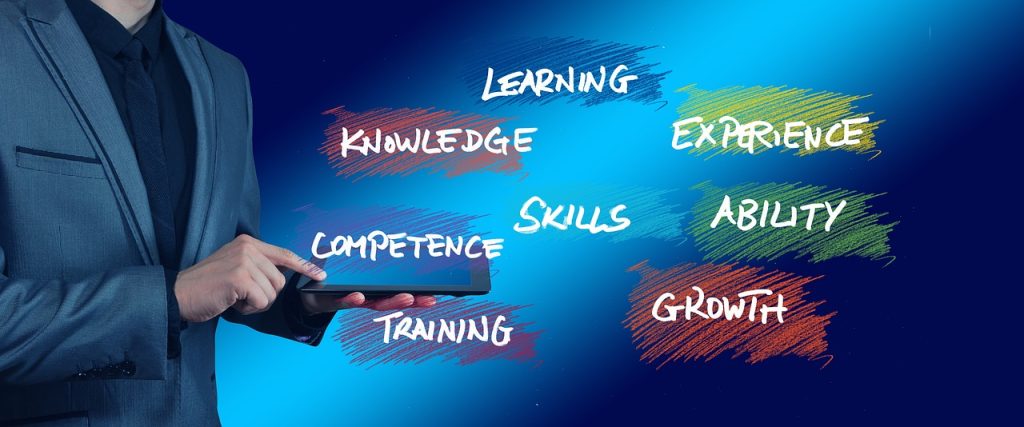How to Set and Achieve Personal Development Goals for Managers
As a manager, you have a lot of responsibilities and expectations to meet. You need to lead your team, manage your projects, communicate with your stakeholders, and deliver results. But you also need to take care of your own personal development, which is essential for your career growth, satisfaction, and well-being.
Personal development goals are the objectives you set for yourself to improve your skills, knowledge, attitude, and performance. They help you identify your strengths and weaknesses, align your actions with your values, and pursue your passions and interests. They also help you prepare for future challenges and opportunities, and increase your chances of getting promoted or earning a higher salary.
But how do you set and achieve personal development goals for managers? Here are some tips and examples to help you get started.
1. Assess your current situation and identify your gaps
The first step to setting personal development goals is to evaluate your current situation and identify the areas where you need or want to improve. You can do this by asking yourself questions such as:
- What are my roles and responsibilities as a manager?
- What are the skills and competencies that I need to excel in my job?
- What are the feedback and expectations that I receive from my boss, peers, and subordinates?
- What are the challenges and problems that I face or anticipate in my work environment?
- What are my personal interests and passions that I want to pursue or develop further?
You can also use tools such as SWOT analysis, 360-degree feedback, or self-assessment tests to help you gain more insights into your strengths, weaknesses, opportunities, and threats.

2. Define your SMART goals and prioritize them
The next step is to define your personal development goals and make sure they are SMART, which stands for:
- Specific: Your goals should be clear and concise, and state exactly what you want to achieve.
- Measurable: Your goals should have criteria and indicators that you can use to track your progress and evaluate your success.
- Achievable: Your goals should be realistic and attainable, and match your abilities and resources.
- Relevant: Your goals should be meaningful and important to you, and align with your values and career aspirations.
- Time-bound: Your goals should have a deadline or a timeframe that you can commit to and work towards.
For example, a SMART personal development goal for a manager could be:
- I want to improve my presentation skills by taking an online course on effective communication and practicing with my colleagues. I will complete the course and deliver at least three presentations by the end of the next quarter.
- I want to learn more about the latest trends and best practices in my industry by reading at least one relevant book or article per week and attending at least one webinar or conference per month. I will keep a log of my learning activities and share my insights with my team and stakeholders.
- I want to develop my emotional intelligence by taking a self-awareness test and working with a coach or mentor. I will identify and address at least one area of improvement per month and apply the strategies and techniques that I learn in my daily interactions.
Once you have defined your SMART goals, you need to prioritize them and focus on the ones that are most urgent, important, or beneficial for you. You can use tools such as the Eisenhower matrix, the Pareto principle, or the ABCDE method to help you rank your goals and decide which ones to work on first.

3. Create an action plan and follow through
The final step is to create an action plan that outlines the steps and resources that you need to achieve your personal development goals. Your action plan should include:
- The tasks and activities that you need to complete for each goal
- The timeline and milestones that you need to follow for each goal
- The resources and support that you need to access for each goal
- The potential obstacles and risks that you need to anticipate and overcome for each goal
- The rewards and incentives that you need to motivate yourself for each goal
For example, an action plan for the goal of improving your presentation skills could look like this:
- Task: Take an online course on effective communication
- Timeline: One month
- Resources: Online platform, laptop, headphones, internet connection
- Obstacles: Lack of time, distractions, technical issues
- Rewards: Certificate of completion, feedback from instructor, improved confidence
- Task: Practice with colleagues
- Timeline: Two months
- Resources: Colleagues, meeting room, projector, slides
- Obstacles: Scheduling conflicts, nervousness, criticism
- Rewards: Feedback from peers, improved skills, recognition
- Task: Deliver presentations
- Timeline: Three months
- Resources: Audience, venue, equipment, materials
- Obstacles: Stage fright, technical glitches, questions
- Rewards: Feedback from audience, improved performance, satisfaction
Once you have created your action plan, you need to follow through and execute it. You need to be disciplined, consistent, and proactive in pursuing your personal development goals. You also need to monitor your progress and evaluate your results regularly. You can use tools such as calendars, planners, trackers, journals, or apps to help you stay organized and accountable. You can also seek feedback, guidance, and support from your boss, colleagues, mentors, coaches, or friends to help you improve and overcome challenges.

Conclusion
Personal development goals for managers are essential for your career success and personal fulfillment. They help you improve your skills, knowledge, attitude, and performance, and prepare you for future opportunities and challenges. They also help you align your actions with your values and passions, and increase your chances of getting promoted or earning a higher salary.
To set and achieve personal development goals for managers, you need to:
- Assess your current situation and identify your gaps
- Define your SMART goals and prioritize them
- Create an action plan and follow through
By following these steps, you can create and accomplish your personal development goals and become a better manager and a better person.

FAQ
- What are some examples of personal development goals for managers?
- Some examples of personal development goals for managers are:
- Improving your communication, leadership, or problem-solving skills
- Learning new technologies, tools, or methods that are relevant to your industry or role
- Developing your emotional intelligence, creativity, or resilience
- Pursuing your interests, hobbies, or passions that enrich your life
- Some examples of personal development goals for managers are:
- Why are personal development goals important for managers?
- Personal development goals are important for managers because they help you:
- Enhance your skills, knowledge, attitude, and performance
- Prepare for future opportunities and challenges
- Align your actions with your values and career aspirations
- Increase your chances of getting promoted or earning a higher salary
- Achieve your personal and professional satisfaction and well-being
- Personal development goals are important for managers because they help you:
- How can I measure my personal development goals?
- You can measure your personal development goals by using criteria and indicators that are specific, measurable, achievable, relevant, and time-bound. For example, you can use:
- Quantitative measures, such as numbers, percentages, scores, or ratings
- Qualitative measures, such as feedback, testimonials, or observations
- Comparative measures, such as benchmarks, standards, or best practices
- Self-assessment measures, such as reflections, evaluations, or surveys
- You can measure your personal development goals by using criteria and indicators that are specific, measurable, achievable, relevant, and time-bound. For example, you can use:
Further Recommended Reading
The Power of Habit: Why We Do What We Do in Life and Business” by Charles Duhigg
The Power of Habit is a fascinating exploration of the science of habits and how they shape our behavior. Drawing on a wide range of research, including neuroscience and psychology, Duhigg examines how habits are formed, how they can be changed, and how they impact our lives.
One of the key takeaways from this book is the importance of understanding the cues and rewards that drive our habits in order to effectively change them. Duhigg’s engaging writing style and use of real-world examples make this book an enjoyable and informative read for anyone looking to better understand the role that habits play in their lives.
Your Best Year Ever: A 5-Step Plan for Achieving Your Most Important Goals” by Michael Hyatt
Your Best Year Ever is a comprehensive guide to setting and achieving meaningful goals, offering a clear and concise framework for creating a vision, setting goals, and developing a plan of action. The author also offers practical advice on how to overcome common obstacles to achieving goals, such as fear of failure and lack of focus.
The book is well-organized and easy to follow, with actionable steps that can be applied to a wide range of goals. The author’s engaging writing style and use of real-world examples make this book an enjoyable and informative read that is sure to inspire readers to take action and achieve their goals.
“Goals!: How to Get Everything You Want — Faster Than You Ever Thought Possible” by Brian Tracy
Goals! is a practical guide to setting and achieving goals. Tracy offers a clear and concise framework for creating a vision, setting goals, and developing a plan of action. One of the standout features of this book is the emphasis on creating goals that are specific, measurable, achievable, relevant, and time-bound (SMART).
Tracy’s writing style is engaging and motivational, with real-world examples that illustrate the power of goal-setting. The book is well-organized and easy to follow, with actionable steps that can be applied to a wide range of goals. Overall, “Goals!” is an excellent resource for anyone looking to set and achieve meaningful goals in their personal or professional life.
The One Thing: The Surprisingly Simple Truth Behind Extraordinary Results by Gary Keller and Jay Papasan
Gary Keller and Jay Papasan teach us that by focusing on one thing, we can achieve incredible success in our work and personal lives. The book is full of practical advice and examples of successful people who have embraced this philosophy, including Warren Buffett and Steve Jobs.
The authors emphasize the importance of prioritization and focus, and provide readers with a roadmap for identifying their “one thing” and making it a priority in their lives.
Atomic Habits: An Easy & Proven Way to Build Good Habits & Break Bad Ones by James Clear
James provides actionable advice on how to build good habits and break bad ones, which can help boost your self-confidence by making positive changes in your life. The author breaks down the science of habit formation and provides practical strategies for creating and maintaining habits that can help you achieve your goals.
The book is well-researched and easy to read, and includes inspiring stories and examples of people who have transformed their lives through the power of habit. Overall, this book is an excellent resource for anyone looking to improve their self-confidence and build a more fulfilling life.







